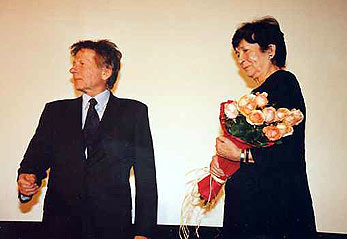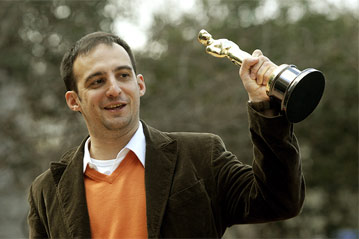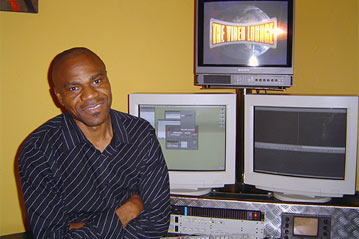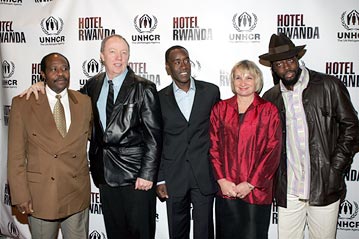Holocaust film raises funds for Kosovo's refugee children
Holocaust film raises funds for Kosovo's refugee children

MADRID, Spain (UNHCR) - Roman Polanski does not usually attend his own film premieres. But on December 3, the renowned director made an exception for a good cause when he presented "The Pianist" at a sold-out screening in Madrid.
Together with Halina Szpilman, the widow of the film's protagonist, Polanski launched the Spanish version of his latest film as part of an initiative to raise funds for refugee and returnee children in Kosovo through a series of film premieres in Spain 's regional capitals.
Knowing that Polanski would only agree to the launch if it benefited a charitable cause, Spanish distributor and co-producer DeAPlaneta had contacted the UN refugee agency's Spanish committee because of the clear link between the film's theme - the Nazi persecution of Polish Jews - and UNHCR's work to protect people fleeing persecution today.
During the Madrid ceremony, UNHCR's Representative in Spain, Carlos Boggio, received a cheque for Euros 30,000. He assured the audience that the agency would use these funds "to help people who suffer from persecution, intolerance and violence today".
"The Pianist" tells the story of a talented Polish-Jewish pianist, Wladyslaw Szpilman, who survived the Nazi occupation of Poland. The only surviving member of his family, Szpilman escaped deportation to Nazi death camps and lived to relate the horrors of the Warsaw ghetto.
Although the film is based on Szpilman's 1946 autobiography, it is not just about the pianist. It is also very much Polanski's own story, as he told the Madrid audience, "I survived the bombing of Warsaw and the Krakow ghetto and I wanted to recreate my memories from childhood."
A Polish Jew himself, the filmmaker managed to escape from the Krakow ghetto through a hole in the barbed wire fence. He was seven at the time. Polanski's mother was deported and never returned from the Nazi death camps. "I always knew that one day I would make a film about this painful chapter in Polish history, but I did not want it to be autobiographical," he said.
When Polanski came across Szpilman's memoirs (republished in 1998), he knew he had found the story he had been looking for and the formula to tell his own story through someone else's voice.
Szpilman died in July 2000 before Polanski started shooting "The Pianist", but he had talked to the director on several occasions and knew that his life would be the subject of the film.
"It is not my place to be here," his widow Halina said in Madrid, "it should have been my husband who should be standing here." In an emotional address, she thanked UNHCR for helping people fleeing persecution.
The Euros 30,000, presented to the refugee agency by Caja de Ahorros del Mediterráneo (CAM), the main sponsor of the Spanish version of "The Pianist", will go to a project in Kosovo to improve primary education facilities and school transport for refugee and returnee children.
By Karin de Gruijl
UNHCR Spain








